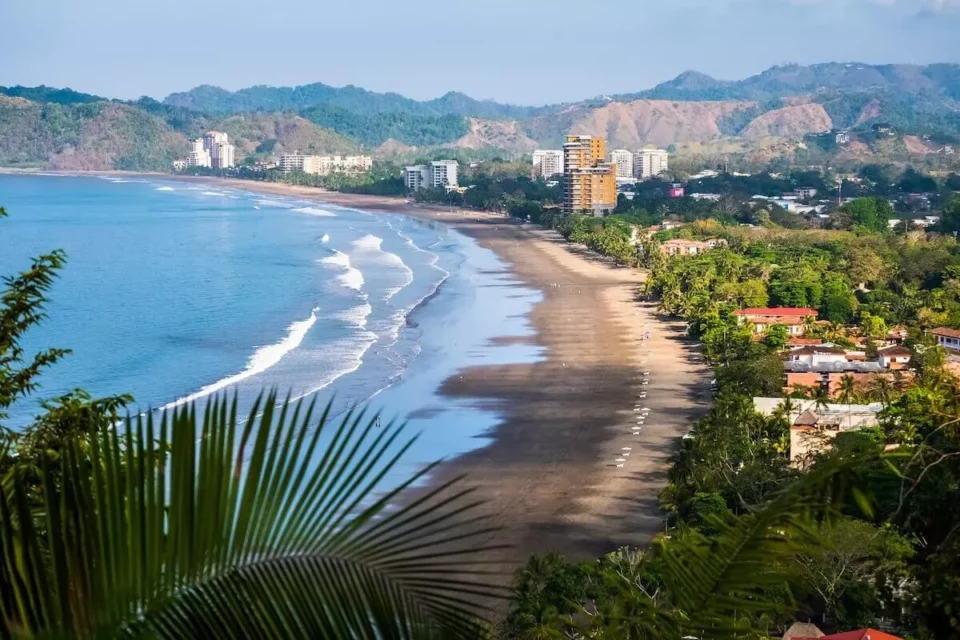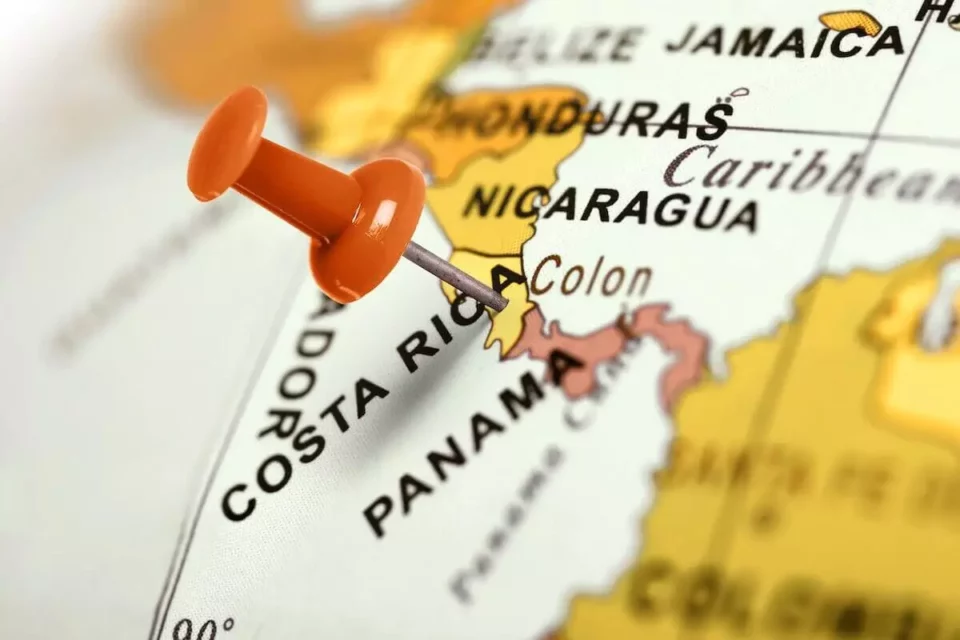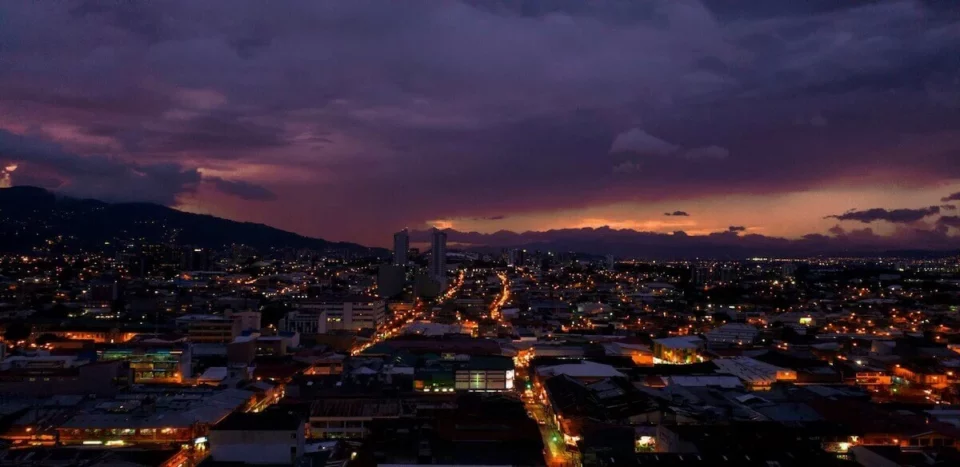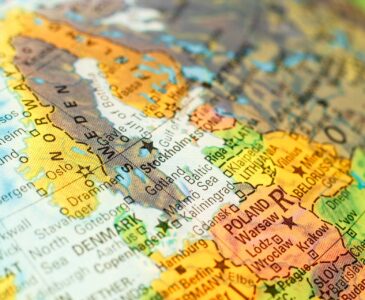When one thinks about Latin America, political stability, safety, and first-class amenities probably wouldn’t be among the expected qualities of the region. Still, Americans moving to Costa Rica will experience it all, and then some more. Indeed, with its pristine nature, paradise beaches, and laid-back lifestyle, this nation has established itself as a perfect long-term getaway from the hustle and bustle of the US.

Costa Rica 101 – What to Know Before Relocating Here
Costa Rica is a very biodiverse nation located between the Pacific Ocean and the Caribbean Sea, and its only land neighbors are Nicaragua and Panama. Its largest city, and since 1823 a capital, is San Jose, with around a million and a half people in the urban core.
The official language is Spanish, though a couple of local dialects are recognized and in use, especially in rural areas. So, some tips for learning a new language might prove useful. One of them would be to be ready to use diminutives a LOT. That is the reason why the local population (of some five million) is called “Ticos.”
When it comes to money, the official currency is Costa Rican colon (CRC). For one US Dollar, you can expect to get around 640 CRC. Now the basics are out of the way, let’s see why Rich Coast is an unmistakable pick if your heart is set on living overseas.

Past and Present of the Rich Coast
First Spanish explorers and conquistadors named the piece of land they discovered Costa Rica, or Rich Coast, due to the quantity of gold worn by the native people. However, once the Spaniards obtained it all, by any means necessary, it turned out there wasn’t more of it in the ground. And so, Rich Coast became, somewhat paradoxically, the poorest region of all Spanish colonies in the Americas. The colonists lived off the land and mostly had to work it themselves since indigenous tribes were quickly wiped out by force and European diseases.
Finally, after Spain lost the Mexican War of Independence in 1821, its Latin American colonies set off on the road to sovereignty. Costa Rica formally proclaimed its independence from the then Federal Republic of Central America in 1838. Its first years were plagued by political instability, but since the first presidential elections in 1869, the nation enjoyed almost uninterrupted peace and democracy.
The brief breaks occurred during the two-year-long dictatorship of General Granados (1917-1919) and a 44-day civil war in 1948. The victorious side, led by a national hero Jose Figueres Ferrer, adopted a new constitution and abolished the country’s military. It is still among the very few non-miniature countries without a standing army. It’s been stable and peaceful ever since, with a strong democracy. Combine that with a welcoming population, and you’ll see why it’s considered among the friendliest countries in the world, with many expat communities that grow by the day.

Immigrating to Costa Rica – Rules and Requirements
So, how to move abroad and how to move to Costa Rica? Depending on your circumstances and reasons to move, it can either be quite easy or really difficult. The easier route is if you don’t need a job. If that’s the case, once you gather all the documents needed to travel abroad, such as ID and passport, and check the special regulations regarding relocating during coronavirus, you’re gonna need a bank statement proving that you have enough money to support yourself. However, the catch is that money must not come in the form of a salary of any kind.
What does that mean in practice? If you are a retiree, investor, or rentier, you can acquire an appropriate visa and obtain a temporary residence permit. For the details about the amount of money required for each visa, make sure to contact the Costa Rican embassy in the US or any of the consulates.
Can Your Furry Friend Accompany You?
Yes, pets are welcome in CR. Requirements for their entry are pretty lax, too. The animal should be vaccinated against rabies and have USDA certification for all other necessary vaccines. It is, however, important that all paperwork is in order since otherwise, the pet will be quarantined, and you won’t be able to visit it until the monitoring period is over.
While dogs and cats are widely accepted, exotic species may be subjected to specific regulations or even bans, so don’t forget to check all the details with consular service in the US. And speaking of exotic animals, there are lots of them here, and some may present a danger to both you and your furry friends. Make sure to learn all you can about that and take the necessary precautions.
What You Shouldn’t Bring When Moving to Costa Rica from the US
Since we Americans move a lot, you’re certainly aware that there are many items movers won’t move within the US. It’s no different when moving internationally with the help of an overseas shipping company. By all means, hire packing services or learn how to prevent things from breaking and pack them yourself, but hazardous stuff should remain behind.
Like any other nation, CR has its own regulations on what can be brought across the border. So, when deciding what to pack when relocating abroad, be mindful of those specifics. Among them are (quite understandably) illegal drugs and plant and animal products, but also pornographic materials. You also won’t be able to bring guns and ammo with you. In this country, only citizens and permanent residents can legally own and carry a firearm.
Moving to Costa Rica for Work – It’s Where Things Get Tricky
Let’s cut to the chase – in order to (legally) work in CR, you have to be a permanent resident. That status can be obtained by being related to a Costa Rican citizen, marriage with one (now there’s the excellent reason for relocating to another country for love,) or after three years of temporary residence. It is technically possible to obtain a work permit as a temporary resident, but your prospective employer will have to prove that no Tico can do the job in question. Knowing that, make sure to prepare a long list of relocation questions to ask the employer before moving overseas.
It Can’t Be That Impossible, Right? Who Can Get a Work Visa?
To expats without needed legal status but in need of a work permit, the government offers so-called Special Category Residency. You can apply for it at the nearest Costa Rican consulate. With it and associated permits, you can get a job in education, entertainment, sports, and several other industries. Also, since this is one of the best places to live abroad with family, it’s good to know that spouses and children can accompany people who got Special Category Residency.
Which Professions Offer the Best Pay?
Once the Costa Rica relocation is secured and all paperwork finished, you’ll want to get a job in some of the better-paid fields. Among the professions with the highest incomes are nurses and doctors, web developers, accountants, software engineers, architects, marketing managers, and others.

Cost of Living is a Great Perk
CR is, without a doubt, one of the best places to live abroad for US expats. And not only because they aren’t relocating across the world to get there. It’s mostly way more affordable than the US, especially in terms of housing cost. According to the specialized website Numbeo, rent is, on average, around three times lower than in the US, even in San Jose. So, if you’re moving abroad alone, you definitely don’t have to move in with friends to share the rent for a home (unless you want to, of course).
There are, of course, prices higher than American ones, namely gas and new cars (an excellent reason, among others, to hire a professional international moving company for overseas car shipping). But, all in all, you won’t need a lot to make a decent living, and with just a bit of balancing finances abroad, you’ll be able to live a dream in CR.
Best Places to Live Across the Nation
Before you get in touch with a reliable overseas moving company to handle the shipping of your belongings, there is an all-important point on your relocating abroad checklist. That is choosing a city to move to. Much will depend on it, not least the quality of your living abroad. Sure, wherever you decide to go, you’ll have to break the language barrier by putting in an effort to learn the language of the foreign land. But the roof over your head and the surroundings can make or break any relocation experience. So, here are our top picks for settling in CR:
- San Jose – In the country’s capital, unfortunately, you won’t find much in terms of stunning architecture. What you will get is a high level of safety and overall high quality of life.
- Cartago – Oldest Spanish city in the then-colony, Cartago was the first capital of the nation. Today it’s a heaven for lovers of history (lots of ruins from many earthquakes in the past) and nature (many beautiful sites in the vicinity).
- Heredia – Easy-going and relaxed, Heredia is a choice of many young people, both single and with families. The city itself and its surroundings earned the nickname “City of Flowers.”
- Puntarenas – The gem of the Costa Rican Pacific coast, Puntarenas is where you should come if you enjoy the shore, islands, and everything ocean-related (yes, it’s the favorite place for surfers).
- Limon – The area in and around Limon, on the Caribbean shore, is probably the most culturally diverse part of the country and a perfect choice if you are after such a living experience in one of the best countries to live in.
La Fortuna is the Best Place to Live if You’re Up for an Outdoor Adventure
The entire nation is filled with natural marvels, but if you wish to be in the midst of them (and love living on the edge,) you should opt for La Fortuna. This charming small town sits almost at the feet of (still active) Arenal Volcano and is a gateway to Arenal National Park. Thanks to the volcano, there is lush vegetation and hot springs, as well as a plethora of opportunities for adrenaline-filled outdoor fun. There are waterfalls and canyons perfect for canoeing and rafting, wildlife is amazing, and volcanic eruptions have created a unique landscape you will enjoy hiking in. If you’re into such a lifestyle, the best time to move to La Fortuna is right now.

Days and Nights in CR
After you’re finished with learning how to move overseas and taking the step, next comes learning to live in another country. And it might prove to be quite a task if you’re coming from (or are used to) frantic haste of the metropolises like NYC. The slow pace of locals, when walking down the street as well as in life in general, will be a big part of an inevitable culture shock. Still, you’ll soon feel at home since the Ticos are friendly and open. You’ll make new friends in no time, and all the moving stress will become just a memory when you adopt the Costa Rican guiding concept of “Pura Vida” or pure life – simple, positive, and relaxed.
And now, let’s get acquainted with some other important aspects of life in the Rich Coast.
Will You Be Safe in CR
On a general note – yes. CR is by far the safest of all Central American countries. That, however, does not mean that you shouldn’t exercise caution and behave properly. Avoid seedier parts of cities, don’t look for trouble, don’t show off with money or jewelry – following these simple and yet all-encompassing rules will keep you safe and sound, as it would anywhere else. Here’s some more info about the country’s safety from a professional travel agent.
Education and Healthcare – We’ll All Need Them Sooner or Later
Another pleasant surprise for American expats in CR will be the quality of schools. Remember that the nation has no standing army? Well, after it was abolished in 1948, authorities decided to invest saved money into education. As a result, Ticos enjoy the finest education system in Latin America. There are public, private, and international schools. Public ones are free for all residents, but the downside is that all lessons are in Spanish. Lessons in private and international schools can be held in English, albeit at a cost.
When it comes to healthcare, it’s also top-notch. Actually, the UN ranks it in the top 20 globally. It’s a small wonder that CR became sort of a mecca for medical tourists from more expensive countries (the US, of course, being among them). All in all, public healthcare facilities are free for the poorest Ticos, while all others pay a monthly fee based on their income (from 7 to 11%). Every expat in the process of obtaining a residency permit is required to sign up for local social security and so become eligible for using public clinics and hospitals. For those who prefer to use private healthcare, there are numerous options, too.
Marvelous Landscapes, Flora, and Fauna – What’s Not to Like
Since the land enjoys a tropical and subtropical climate, be ready for fewer seasons than you’re used to on the East Coast or the Midwest. All the wintry clothes and gear you don’t sell or donate you can safely stash in some storage facility. However, there will be loads of rain from May to November, so when planning what belongings you will be shipping overseas, make sure to include a waterproof jacket or two and boots. Come to think of it, being on a path of hurricanes from time to time is one of the few downsides of life in this country.
Aside from that, you will be able to enjoy lush and diverse nature in and around many national parks. There are rivers, lakes, waterfalls, mountains (the highest point is called Cerro Chirripo, standing 12,530ft tall,) with many suspension bridges, and 14 (known) volcanoes. Forests are thriving here since deforestation has been successfully reversed, and many once critically endangered animal species have recovered to some extent. But the main celebrities are sloths, which can be seen in many places around the land. Outdoorsy types would have a really difficult time finding more suitable places for their lifestyle. Even though islands Nublar and Sorna don’t exist (unfortunately, we might add).

Cultural Offer and Other Pastimes
Aside from spending time outdoors, Ticos engage in numerous activities. The local culture is an eclectic mix of influences, from Native American, through Spanish, to African (brought by imported slaves in the 17th and 18th century). The same goes for cuisine and its main staple – tamale. In their leisure time, Ticos enjoy parks, museums, and galleries, while soccer is considered the national sport. We can safely say that, whatever your preferences are, you won’t be bored between the mountains and the seas and will have loads of topics for video chats with friends back home. If you wish to see some of the stuff that awaits you, check out this video.
Convinced Already? Then Contact Reliable International Movers and Became an Expat in CR In No Time
After reading all this, it is virtually impossible to stay indifferent and not inquire about the price of the international relocation services. The richness of the Rich Coast is at your grasp – all there is to it is calling trustworthy professionals and arranging a move-out date. Professional movers will move you efficiently and fast, leaving you to browse the web and research the marvels you’ll soon be surrounded with. And don’t forget – the key is Pura Vida!















